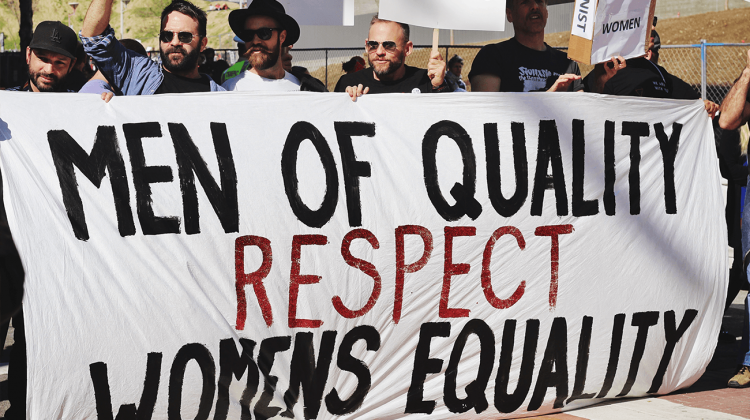One of the areas of emphasis of Project HEAL is to engage male and male identifying staff, students, and faculty on the campuses of Missouri State University (MSU) and Ozark Technical Community College (OTC) in sexual violence prevention efforts. For far too long, we have been relying on educating women on how to keep themselves safe, how to reduce their chances of being victims of violent sexual crimes, and how to lead conversations about sexual violence prevention. With our Engaging Men Coalitions on both campuses, we are looking to not only broaden this education and awareness piece to include male-identifying students, staff, and faculty but also to encourage these men to take action.
We are working to encourage and ensure male participation by offering opportunities for students to take part in peer-to-peer education, dialogue and activity facilitation, and by providing them with a platform to take a deeper, more critical look at the ways our society promotes and sustains a culture that normalizes sexual violence towards women. This participation is not only important to the task at hand, it is essential to the desired outcome of changing our on and off-campus culture to become a culture intolerant of all types of sexual violence and of the perpetration of harmful male stereotypes.

Weston McConnell, Outreach Case Manager at Harmony House, leads our Engaging Men Coalition at Missouri State. Meaghan Duda, Chief Violence Prevention Commissioner for the Student Government Association, was instrumental in recruiting our first group of students and is also involved with planning session content and coordinating meetings. Weston shares the group’s goal and a little background on the work the group has been doing since the beginning of the spring ‘19 semester:
“The goal of the coalition is to engage men and male identifying students to help prevent sexual assault, domestic violence, dating violence and stalking. We are slowly working our way through conceptual frameworks to see how we have been molded by our families, friends, coaches, teachers, institutions, employers, and advertisements. We have been referencing videos, graphics, and articles to drive conversation and challenge narratives in a group setting.”
Weston goes on to explain;
“Being able to wrestle with these concepts in a safe space with other male identifying students who are also interested in living and promoting equitable and healthy relationships has been invigorating. Seeing how the students have engaged so far, I have hope knowing that conversations like this are happening on our local campuses.”
MSU’s Engaging Men Coalition meets every other Thursday night from 5:30 pm-6:30 pm in Siceluff Hall. The last two meeting dates of the spring ’19 semester will beApril 25th and May 2ndin Siceluff 216 from 5:30 pm-6:30 pm.By either the fall of ’19 or the spring ’20 semester, this group will be providing peer-to-peer prevention education to the MSU student body by facilitating student-led activities and dialogue sessions. Please email Weston McConnell at westonm@myharmonyhouse.orgfor more information.
Our Engaging Men Coalition at Ozarks Technical Community College is taking a different approach as it is comprised at this point of male-identifying staff and faculty. This commitment to the issue at hand by male staff and faculty members is of utmost significance to the overall success of the initiative. Dr. Loren Lundstrom, chair of the coalition and Dean of Student Development at OTC, outlines two significant issues that are framing the work this group is doing. He says,
“The first being the fact that men can also be victims of sexual and interpersonal violence, and second, that the effects of toxic masculinity can have a very negative impact on how we as men live our lives.”
Dr. Lundstrom goes on to identify 5 key points that make up the mission of OTC’s Engaging Men Coalition,
“(1) Improve the response protocol and provide support for male-identified survivors of sexual and interpersonal violence; (2) propose activities intended to help our campus male population develop empathy and emotional intelligence; (3) suggest processes that offer campus men a positive, strength-based approach to prevention of gender-based violence; (4) support gender equity; and (5) enhance awareness of the unhealthy aspects of masculinity that may be harmful to the self and others.” Please email Dr. Loren Lundstrom at lundstrl@otc.edufor more information.
In the fall, the groups will be co-hosting a screening of the documentary “The Mask You Live In”at the Moxie Cinema followed by a panel discussion. We are excited to be involving these groups in sexual violence prevention efforts on both campuses and we recognize that in order to make a difference, it takes effort on behalf of all involved. Please stay tuned to our website for information on upcoming events. Email Kunti Bentley, project coordinator of Project HEAL, at kuntibentley@missouristate.edufor more information.

